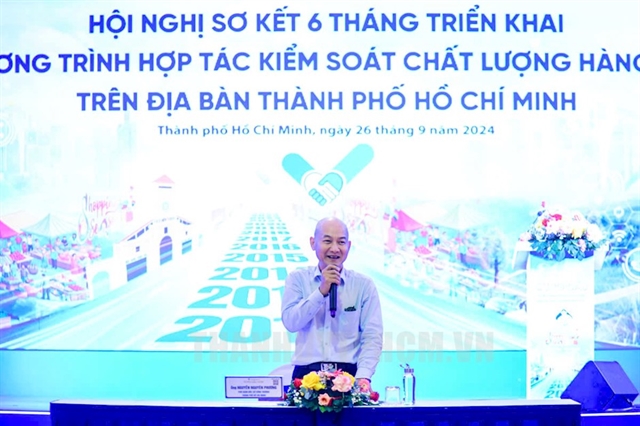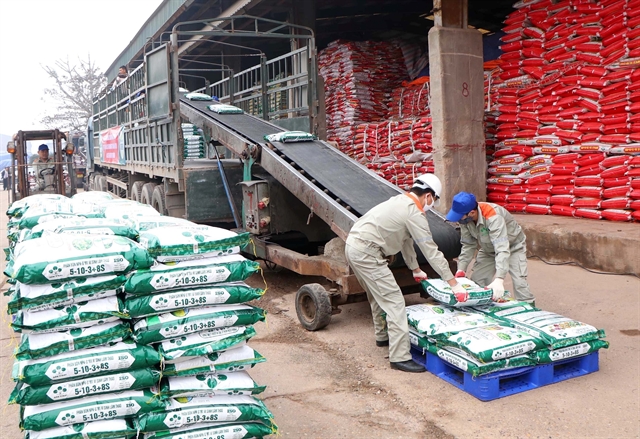 Economy
Economy

 |
| Fertiliser products from Lâm Thao Super Phosphate and Chemical JSC. Currently, mandatory testing of fertilisers requires considerable time and investment, with some products taking up to two years to pass the testing and approval process.— VNA/VNS Photo |
HÀ NỘI — At a workshop on problems in implementing regulations for the agriculture sector held in Hà Nội on March 27, experts said that the removal of certain regulations on products would benefit both businesses and consumers.
According to the experts, several regulations in the Law on Product and Goods Quality and the Law on Standards and Technical Regulations – especially regarding conformity declarations – are seen as detrimental to key agricultural industries, including rules on fertilisers and plant protection products, as well as animal husbandry. These regulations not only hamper domestic production and export activities, but also increase costs for consumers.
Chairman of the Việt Nam Livestock Association Nguyễn Xuân Dương said that these regulations create unnecessary burdens for businesses, adding extra costs that ultimately raise product prices for consumers.
Another major issue raised by Dương is a mandate that imported goods must bear a conformity mark and undergo a conformity declaration.
He said this requirement is inappropriate, as many countries around the world do not impose such regulations on imported goods. Consequently, foreign products imported into Việt Nam must be specifically produced with conformity marks to comply with Vietnamese laws.
All imported shipments must be also sampled for analysis and inspection to declare conformity, which results in increased costs and delays for businesses.
Dưong pointed out that such regulations are uncommon internationally. Countries typically apply quality inspections to a small percentage of imported shipments (usually no more than 5 per cent).
The conformity declaration regulation has also been a point of contention for the veterinary medicine sector.
Nguyễn Thị Hương, vice chairwoman of the Việt Nam Veterinary Association, emphasised that the conformity declaration is hindering the competitiveness of Vietnamese veterinary medicine manufacturers in the global market.
Vietnamese companies export veterinary medicines to over 40 countries, and none of these nations require a conformity declaration for the products, she noted.
Hương argued that removing the conformity declaration requirement would allow Vietnamese businesses to compete on equal footing with international competitors, enhancing their market opportunities.
The fertiliser industry has also been significantly impacted by these regulations.
Trần Đại Nghĩa, deputy general director of Lâm Thao Super Phosphate and Chemical JSC, called for a more flexible and practical approach that takes into account product quality and safety standards while reducing the financial burden on businesses.
Currently, mandatory testing of fertilisers requires considerable time and investment, with some products taking up to two years to pass the testing and approval process.
This delay can result in missed market opportunities and increased costs, putting local companies at a competitive disadvantage.
Nghĩa also proposed the National Technical Regulation on Fertiliser Quality, QCVN 01-189:2019/BNNPTNT, be updated to reflect current market realities and alleviate the challenges faced by businesses and farmers.
The National Assembly is expected to review and approve the draft amendments the Law on Product and Goods Quality and the Law on Standards and Technical Regulations in May.
Experts believe that revising these laws to remove the conformity declaration requirement would help streamline processes, reduce costs and support the competitiveness of local businesses. — VNS